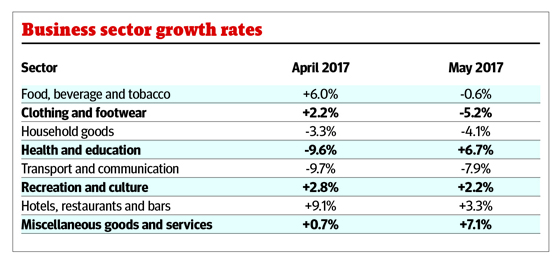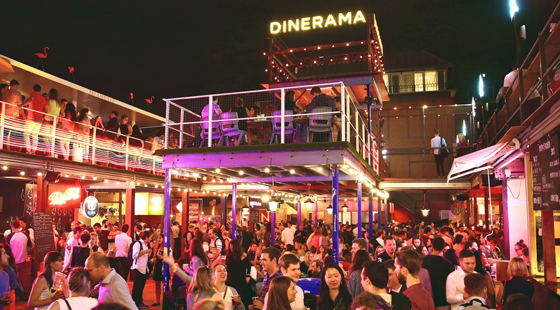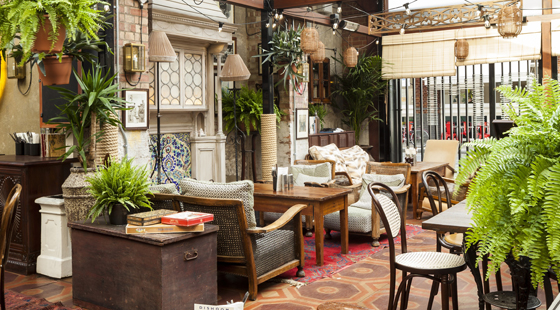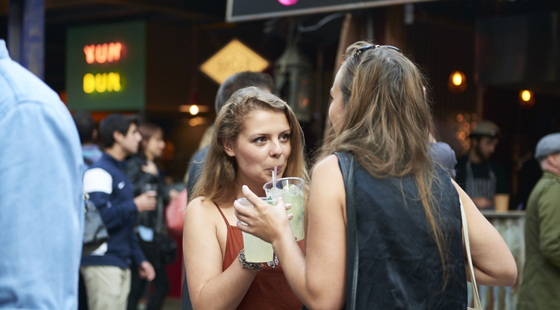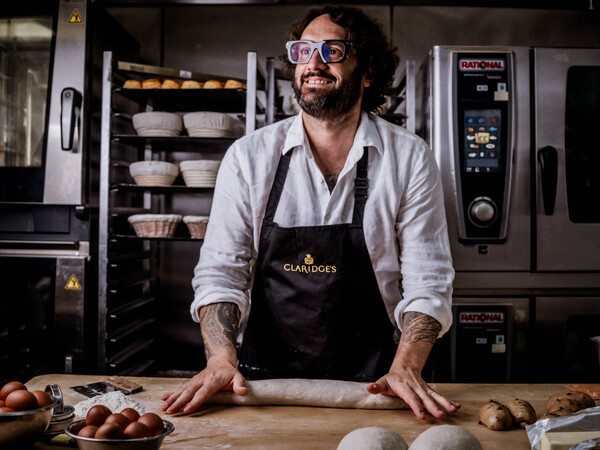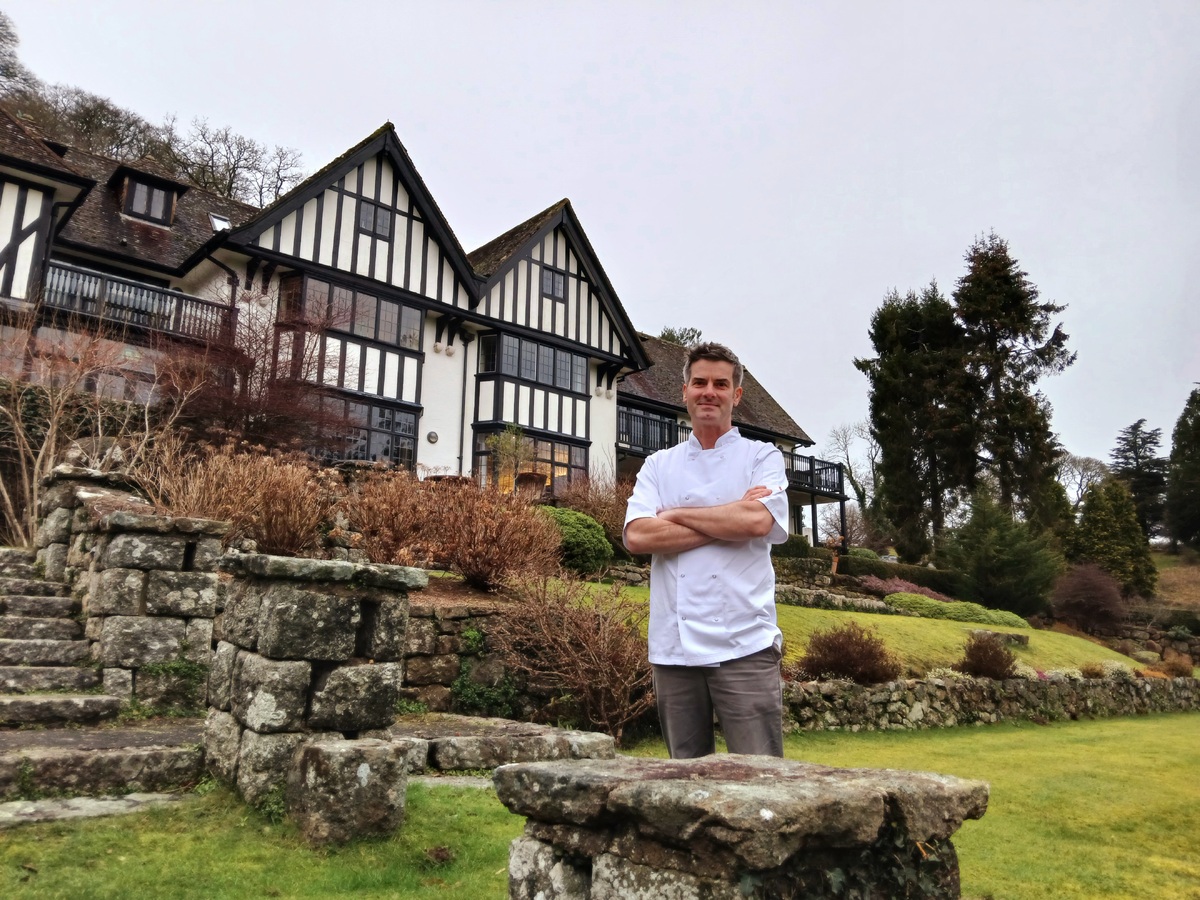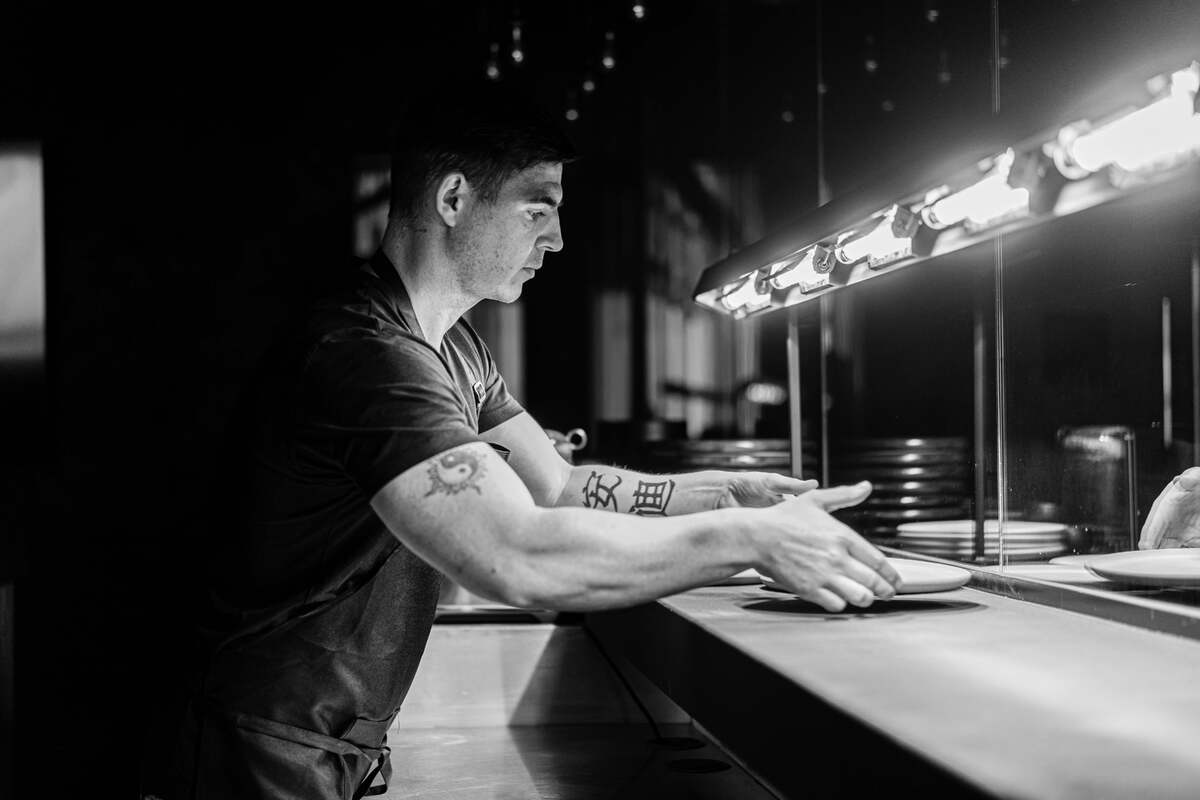More than just a meal: the rise of experiential hospitality
If you think that modern catering is all about selling food and drink, you're missing the point. Janie Manzoori-Stamford reports on the heady rise of ‘experiential hospitality'
The fight for footfall in restaurants and catering outlets is fierce, even though the number of people eating out has not fallen. In spite of the financial pressures piled on by years of austerity and geopolitical and economic uncertainty, the British foodservice industry has so far remained remarkably resilient, according to recent figures from global information company NPD Group.
However, diners are much more discerning nowadays about where they are prepared to spend their precious pounds. As belts tightened after the 2008 financial crash, best price gave way to best value in the eyes of customers, and their priorities have arguably evolved further still. It is no longer considered enough for foodservice providers simply to provide food, whatever the price point. In short, consumers are crying out for experiences.
Is this shift in behaviour a new reality for operators or is the rush to serve up "experiential hospitality" just the latest flash in the pan? If consumers really are less interested in acquisitive, material-based purchases, why is that? What is the alternative, and how can hospitality operators be first in line to offer it?
Behavioural shift
"There is a significant and steady switch away from things towards experience," says Mark Davies, head of insight at Compass Group UK & Ireland. He cites Visa's June 2017 consumer spending index (see below).
"If you look at the list you can see the economy is starting to creak a little bit," Davies says. "But health and education, recreation and culture, and hotels, restaurants and bars are going up. These are all things that involve a person actually doing or experiencing something."
âThe difference isnât huge as itâs only one year,â says Davies. âBut if youâre working at our Levy Restaurants UK brand, which delivers catering at leisure parks, sports stadia and heritage sites, thatâs vital growth.â
The value of experiential consumerism has cranked up across the board, according to Jonathan Downey, co-founder of London Union, the parent company of Street Feast, whose four street food markets in the capital include the 1,000-capacity Dinerama in Shoreditch. He says: âConventional retail is dying because it doesnât offer an experience, so you see all kinds of fashion and food outlets are having to offer much more of an event to guests and customers than they have ever done before.â
This shift has been driven in no small part by e-commerce, which continues to change the face of Britainâs retail environment by taking an ever-larger market share.
As bricks and mortar stores feel the pinch of losing trade to online rivals, retailers are looking for new ways to bring in consumers, and food and beverage is high on the list. F&B, alongside leisure facilities such as cinemas, has started occupying more space in new and refurbished shopping centres across the UK.
Trinity Leeds is the perfect example. The £378m 93,000 sq m Land Securities scheme opened in 2013 with more than double the amount of leisure space originally planned (up from 10% to 24%). With more than 40 cafés, bars and restaurants, including D&Dâs first foray outside of London and street food space Trinity Kitchen, as well as a three-screen cinema promising a heady mix of mainstream and independent movies, Trinity Leeds hammers home the message of experience with the tagline Fashion, Food, Film.
The F&B advantage
The aim is to attract footfall, increase dwell time and, ultimately, spend. And the reason F&B is a significant way to do that is that it cannot be completely replaced by technology.
As Downey points out, you can get a pretty good dining option at home thanks to the likes of Deliveroo, Just Eat and UberEats. But there is one thing those food delivery services are unable to provide in foil trays and brown paper bags: the experience of eating out.
âAt the very least there has got to be a great atmosphere, and itâs only in the last few years that restaurateurs have caught on to that,â Downey says. âThe way we see Dinerama is every night you go feels like a party. We only open three or four nights a week in the summer, so we compress the crowds into those few days. Itâs always lively and happening. It feels like thereâs something going on that itâs good to be a part of.â
So does creating an event-like atmosphere set an operator on the path to being more experiential? It is certainly one route, but consumer psychologist Kate Nightingale, founder of consultancy Style Psychology, says the first thing a restaurant or caterer needs to work out is what they are ultimately selling. And no, the answer is not food.
âYouâre selling belonging, social interaction, identity, status, escapism. If you donât understand that, you cannot design a whole experience strategy accordingly,â she explains. âOnce you have the final, experiential, intangible goal â" the symbolic meaning behind your brand and the experience you are selling â" you can trickle it down through every single detail.â
And the details are vital. âOur subconscious can process 11 million pieces of information a second, yet our conscious brain can barely manage 40,â she adds, citing Dishoom as an operator that knows how to sweat the small stuff.
No detail too small
Shamil Thakrar, Dishoom co-founder and head babu, agrees. The five-strong group has built its proposition on offering a site-specific immersive narrative to every customer, based on stories of Irani cafes and Bombay culture. âLiterally, there is no detail too small,â he says. âWe had all the screws replaced at the Dishoom in Carnaby because they werenât the flat-head screws of the 1960s. Itâs important, not because you necessarily notice them, but because it gives you a sense of place.â
But some details are more important than others, Thakrar adds. Operators need to be fanatical about the right things: âJust because youâre very adept at driving, you still need to drive in the right direction. Figure out what youâre doing and create a great proposition. Then execute it really well.â
Thai restaurant chain Busaba Eathai, founded by Hakkasan and Wagamama entrepreneur Alan Yau, takes an equally immersive, narrative approach. It is based on the Thai concept of ânamjaiâ, a term meaning thoughtfulness or kindness, often used to describe the decency of Thai people.
âWe have worked on becoming storytellers. Itâs what we call the Busaba way, and culturally, we use the value of namjai to deliver this,â explains chief executive Jason Myers. âIt starts with our people. Itâs important that the environment in which the experiences are created is stimulating, comfortable and feels authentic to the brand. So factors such as lighting, art, staff uniforms and visual clues about the brand tell our culture and bring it alive.â
The impact of e-commerce on traditional consumerism is massive, but there is still one particular demographic that is leading the charge when it comes to demanding more experiential bang for their buck: millennials (see The need for experience, opposite).
âThe under-35s â" the discovery crowd â" are crying out for a more immersive experience,â says Downey. âThey want to go around ticking boxes, trying things and taking pictures.â
They also want to share. Thanks to social media, individuals can be the editors of their own lives. Millennials are the generation most likely to post their experiential highlights through Facebook, Twitter, Instagram and SnapChat. For some, the sight of diners pulling out their phones to snap pictures of their food can be tedious. But for the savvy operators, it is a word of mouth marketing opportunity.
âPeople have their own entertainment in front of them when they have a mobile phone â" thatâs what weâre competing with. If the experience is special enough, the phone is used to share the new moment weâve created,â reiterates Davies.
Myers says: âGuests are looking for moments that are worth capturing and sharing with their friends and followers, giving restaurants the chance to become part of peopleâs lives â" as long as they are able to facilitate those moments to be created, of course.â
The need for experience
As a result of the digital age, peopleâs need for social experience has become much more pressing. That, at least, is the view of Kate Nightingale, founder of strategy and customer experience consultancy Style Psychology.
âDue to the prevalence of technology, we are becoming more and more socially isolated,â she explains. âOur interactions with other human beings are very surface-based, particularly for millennials. So we require that contact with other human beings more and more. Itâs a very evolutionary need.â
The importance of experience to consumers is not new, she adds. Regardless of whether people feel they need it or not, they still have an experience of everything they interact with.
Operators have upped their experiential hospitality game in recent years as a result of a growing recognition that it is important to design an experience strategically.
âBusinesses are starting to pay more attention to all the details that go into an experience, and how strategically the focus is in line with their brand values, personality, ethos and purpose,â says Nightingale. âExperts that have been doing research on this for the last five or six decades have finally started to speak up.â
Transport of delight
Levy Restaurants UK, the sports, leisure and hospitality brand of Compass Group UK & Ireland, operates under the brand proposition of âlegendary experiences through powerful partnershipsâ. But what does that mean? And how is a caterer â" particularly one operating in such diverse markets as sports stadia, museums, visitor attractions, conference centres and arenas â" able to apply the experiential approach to its hospitality offer?
Anna Fenten, Levyâs head of marketing, explains: âWorking side by side with each client, venue or event, we are able to create a truly memorable experience, merging the physical aspects of a venue with a blend of venue touch points, tailored cuisine and seamless service.â
The afternoon tea concept on the Countess of York at the National Railway Museum demonstrates this strategy in spades. It is served in a real railway carriage from a bygone era, and the dishes on the menu use local and sustainably sourced produce. But, what really sets it apart is the setting itself and the atmosphere that is created.
Fenten says: âGuests are transported back in time to experience a luxurious and nostalgic afternoon with loved ones while enjoying the opulence and culinary excellence reminiscent of luxury train travel â" it truly is something special.â
This unique experience was recently named the Afternoon Tea of the Year at
the VisitEngland Awards for Excellence.
Up your experiential game
End game
Decide what it is you are selling. Is it status or identity? Is it escapism or new friends? Once you know, you can choose the tools â" food and drink, design, service â" that will deliver the outcome.
Strategic design
Every single detail in your business contributes to the whole hospitality experience that you are selling. Choose the details strategically to ensure that they support your vision.
People power
Design your business to attract great staff. They will draw in the best crowds, who in turn will help you to recruit top talent. This virtuous circle is what creates great atmosphere.
Market insight
The Caterer has teamed up with Compass Group UK & Ireland to produce exclusive content that offers an in-depth look at the state of the foodservice market today. In a series of regular articles throughout the year we aim, with the help of Compass and its insight team, to examine the key issues the sector is facing, as well as some of the key trends.



